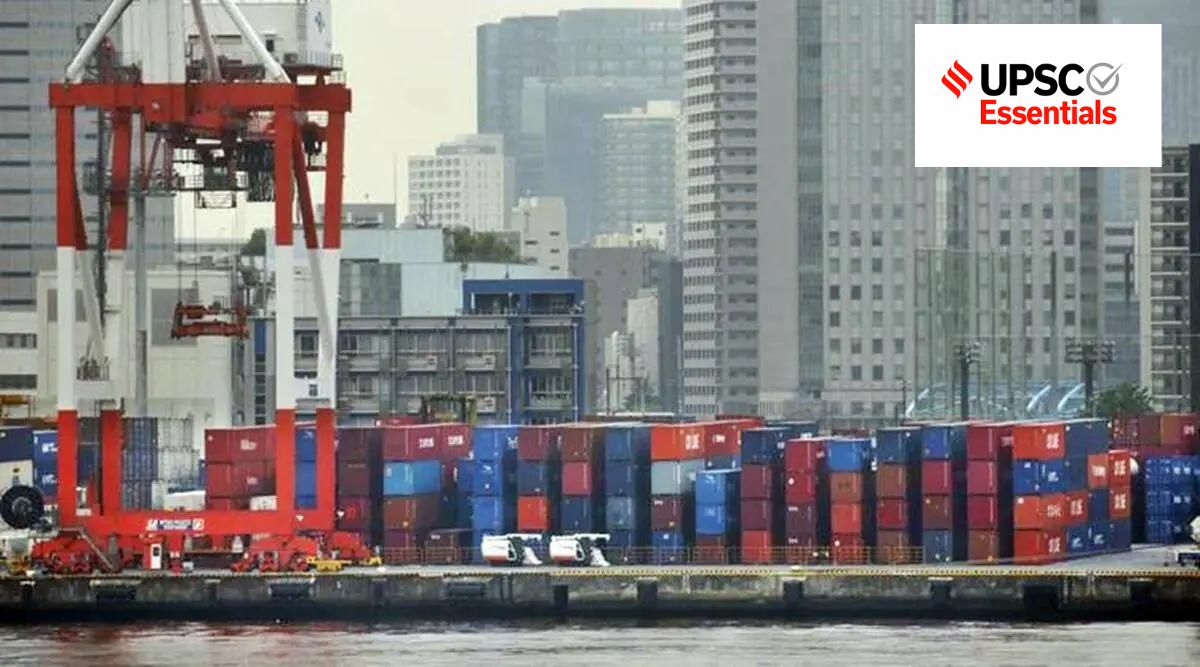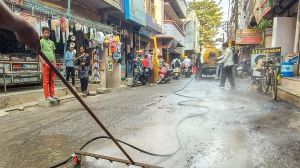Take a look at the essential concepts, terms, and phenomena from the static and current parts of the UPSC-CSE. Also, check the answers to previous MCQs.

Subject: Economy
(Relevance: Static term from the economy is always in news due to India and WTO issues. Aspirants should also make a note of this term for using it wisely in Mains GS III. Solve the MCQ after reading the article carefully.)
Why in news?
Aruna Sharma, a former secretary Government of India writes for The Indian Express that 5G technology is going to make inroads into the country very soon. Top smartphone manufacturers in India have already released phones with 5G capability. However, India’s optical fibre industry has seen unfair competition from cheap imports from China, Indonesia and South Korea. These countries have been dumping their products in India at rates lower than the market price.
What is dumping?
—The World Trade Organisation defines dumping as “an international price discrimination situation in which the price of a product offered in the importing country is less than the price of that product in the exporting country’s market”.
—Therefore, dumping is, in general, a situation of international price discrimination this unfair trade practice which has a negative impact on international trade.
— Simply put, when the goods are exported by a country to a foreign country at a price lower than the price it charges in its own home market is called dumping.
Note: Dumping is legal under World Trade Organization (WTO) rules if the foreign country can reliably show the negative effects the exporting firm has caused its domestic producers. In order to protect domestic producers from dumping, countries use tariffs and quotas .
Story continues below this ad
What do we understand by the term “anti-dumping” as a concept?
—The WTO Agreement does not regulate the actions of companies engaged in “dumping”. Its focus is on how governments can or cannot react to dumping — it disciplines anti-dumping actions, and it is often called the “Anti-dumping Agreement”.
—Anti-dumping is a protectionist tariff, imposed by a domestic government on foreign imports that are at a price lower than the price it normally charges in its own home market.
—Anti-dumping duty is imposed as a remedy to the distortive trade which arises due to dumping of goods. This tool of fair competition is permitted by the WTO.
Story continues below this ad
—From long-term perspective, anti-dumping duties can reduce the international competition of domestic companies producing similar goods.
Note: There is a difference between Anti-dumping duty and Countervailing duty.
— Countervailing duty is a customs duty on those goods that have received some kind of government subsidies whether in the originating or exporting country.
—Anti- dumping duty is a form of customs duty on imports. It actually provides a protection against the dumping of goods at prices substantially lower than the normal value.
Story continues below this ad
What is the WTO’s provision of sunset review related to Anti-Dumping Duty?
—Unless revoked earlier, the validity of anti-dumping duty is for five years from the date of imposition. It can be extended for a further period of five years through a sunset or expiry review investigation.
—Simply put, it is an valuation of the need for the continued existence of a program or an agency.
Which authority in India administers trade remedial measures like anti-dumping?
Story continues below this ad
—Directorate General of Trade Remedies, the apex national authority under the Ministry of Commerce and Industry which administers all trade remedial measures.
—Trade remedial measures include anti-dumping, countervailing duties and safeguard measures.
—Its job is to provide trade defence support to the domestic industry.
—Also, it provides safeguards to the exporters in dealing with increasing instances of trade remedy investigations instituted against them by other countries.
MCQ:
Story continues below this ad
Consider the following options and select the incorrect option with respect to he concept of ‘dumping’-
a) Directorate General of Trade Remedies, the apex national authority under the Ministry of Commerce and Industry which administers all trade remedial measures including dumping.
b) Dumping is the ability to flood a market with product prices that are often considered unfair.
c) The WTO Agreement regulates the actions of companies engaged in “dumping”.
Story continues below this ad
d) Anti-dumping duties can reduce the international competition of domestic companies producing similar goods.
Answer for the previous MCQs-
UPSC Essentials: Reports, policies and data on your tips- NITI Aayog’s report on gig economy – (d)
UPSC Essentials: One word a day- VPN


































